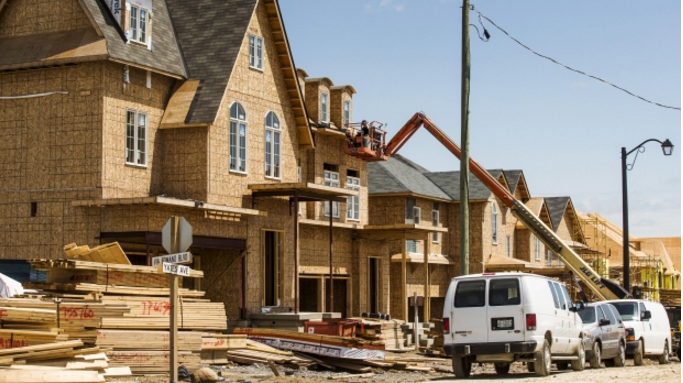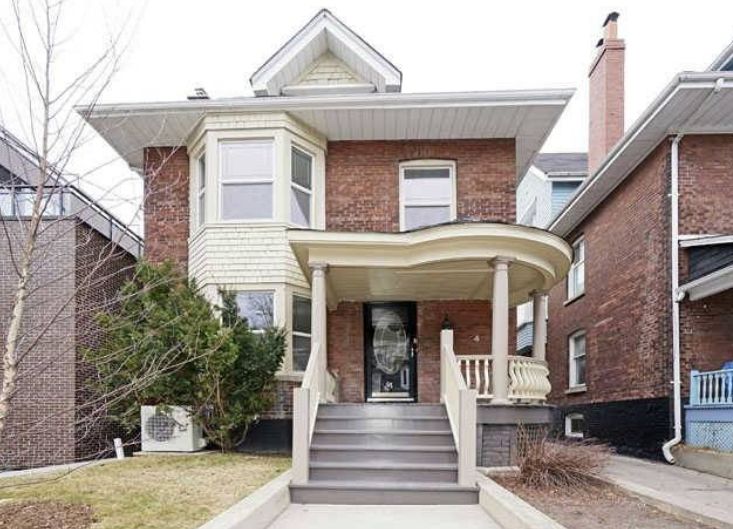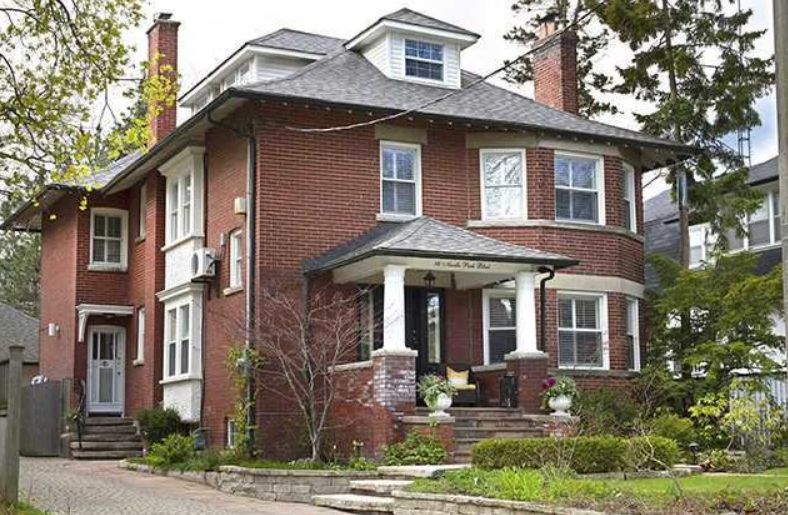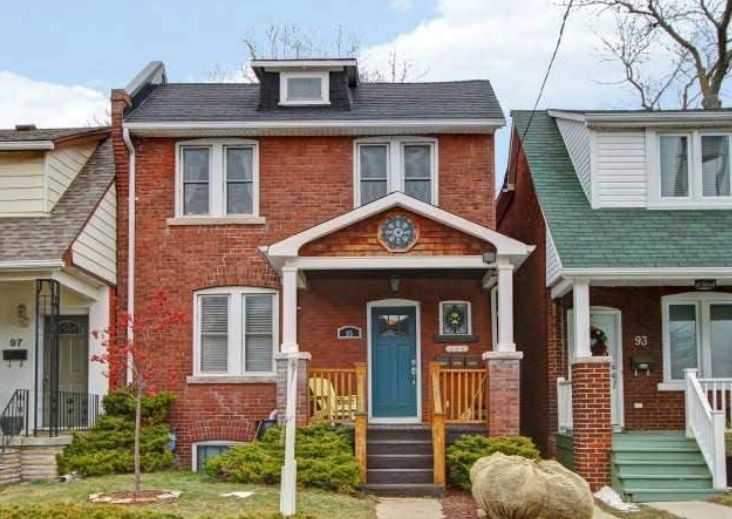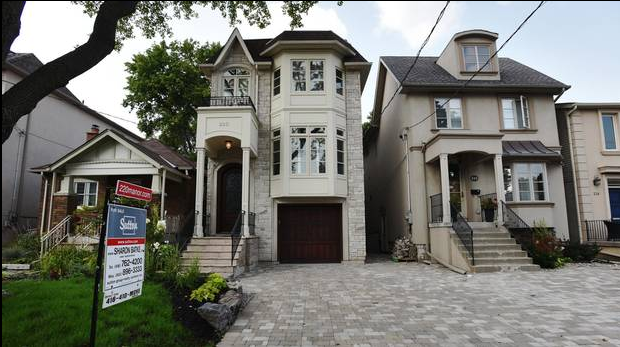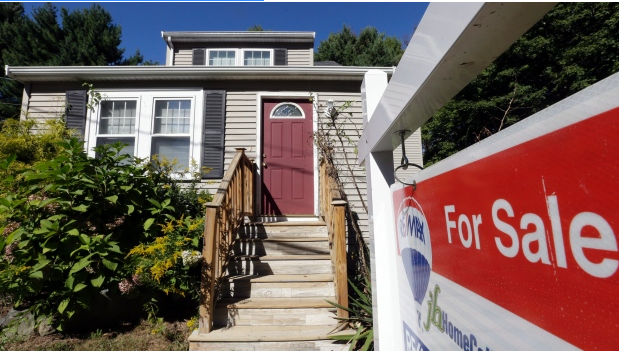In toronto real estate, housing prices in Durham Region are on the rise. And just like those other parts of the country, some are saying the growing prices are not sustainable.
According to a news release from the Durham Region Association of Realtors, average selling prices in Durham Region were up 15.8 per cent in June compared to the year before, with the average home selling for $542,314.
In fact, housing prices have been on the rise across the country, with the market seeing a 13-per-cent bump in the same time period, with the average Canadian home now selling for $509,460.
And with those rising prices comes the prospect that they are getting too high.
“I was actually trying to buy a property here, and I found that it is ridiculously priced right now. Properties that were going for around $300,000 a few years back are now going for $500,000, $600,000. That’s not sustainable,” says Dr. Karthik Sankaranarayanan, a professor with the business department at the University of Ontario Institute of Technology (UOIT), adding that current housing prices pale in comparison to the inflated levels seen in Toronto and Vancouver.
“I really don’t know if you can call it a bubble yet, because it depends on what you are basing it on. Are you basing it on the entire Canadian economy, or just two cities? That’s the question mark there.”
According to Canada Housing and Mortgage Corporation’s (CHMC) recently release third quarter housing market assessment, several markets – including Toronto, Vancouver, Calgary and Saskatoon – are showing strong signs of problematic conditions.
Toronto’s housing market, according to the report, is showing strong indicators of overvaluation and assessments. The country as a whole is showing strong signs of overvaluation.
While not included in CHMC’s report, Dr. Scott Aquanno, a senior lecturer in UOIT’s political sciences department, says housing prices in Durham Region are definitely affected by what is happening elsewhere in the country.
“What’s happening in Oshawa and Durham is certainly connected to what’s happening in Toronto and nationally,” he says.
“But having said that, there is certainly, I would argue, a bubble right now in the housing market and there is likely a bubble in the Durham housing market as well, although I would suggest the bubble is smaller than the one in Toronto because housing prices were slightly depressed prior to the reduction in interest rates, which in a sense precipitated this problem.”
Should there be a housing bubble in Toronto and it were to burst, Aquanno says the effects could be felt not just nearby, but across the country as well.
“If the housing bubble bursts in Toronto, I think the national economy is going to be impacted, because of how that is needled through the financial system. I think it would have a broad and cascading effect on the financial services industry, on mortgage availability, perhaps on line of credit availability…which isn’t just isolated to Toronto,” he says.
“In that sense, nobody is going to be immune from that, including the people off in B.C. or in Alberta. But in terms of housing prices out here, it would really depend on the nature of the bust, whether it was a complete collapse of housing prices like what we saw in the early 1990s and perhaps that would put a downward pressure…in this region. It depends on how much…of a bubble you think there is in the Durham Region.”
However, Aquanno adds that the high prices seen in Toronto – the Toronto Real Estate Board said the average price for a home in June was $746,546, with detached homes going for an average of just under $1.26 million – has in turn helped drive the Durham Region real estate market forward, with more people wanting homes than there are homes for sale.
“What’s driving prices out here is the escalation of prices in Toronto. Demand is exceeding supply because of the overheated market in Toronto,” he says.
Dana Senagama, the principal of market analysis for the Greater Toronto Area with CHMC, agrees with that notion, saying that while the average price for a new home in the Durham Region is growing, the fact that it is so far below the levels seen in Toronto will help keep it strong.
“When you’re looking purely at price performance and then how prices have been behaving over the past year or so, we are seeing evidence of overvaluation. A lot of the drivers and conditions that we are seeing across (the Toronto census metropolitan area) can be applied to the Oshawa (census metropolitan area) because it is a part of the GTA,” she says.
“That being said, Oshawa…has been one of those markets that has continued, over the past five years, to attract a lot of flow, a lot of new people entering that market because it is about 60 per cent less in terms of average house prices.”
Senagama says that, in fact, the Durham market is among the best ones going right now in Canada.
“It is one of the strongest markets, and it is showing a lot of growth,” she tells The Oshawa Express.
“The rate of (price) growth is high, but at the same time, you’re looking at…about half of what you would pay for a single detached home in Toronto. So although prices might be going up nine, 10 per cent, you have to look at what levels they’re at. You can buy a single detached home for half a million, or $550,000 in the Oshawa (census metropolitan area), versus over a million bucks in Toronto.”
Sankaranarayanan says that should a housing market collapse come to Canada, it will not be near the level seen south of the border during the financial crisis of 2007 and 2008, which saw the average selling price of an American home reach a high of US$313,900 in 2007 before falling to US$270,900 – a drop of more than 13 per cent – in two years’ time, according to data from the US Census.
“The Canadian market is not as big as the U.S., so the tank would not be that bad, and it would not severely affect the economy,” he says.
“When I say tank, in Vancouver or Toronto it might be a bit drastic, but that is not what our entire economy is based on. I don’t think it would severely affect the Canadian economy, per se, but individual markets, maybe.”
Read the full post in The Oshawa Express

